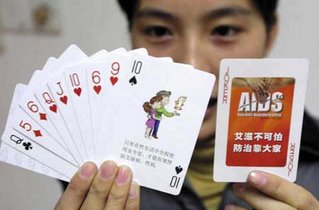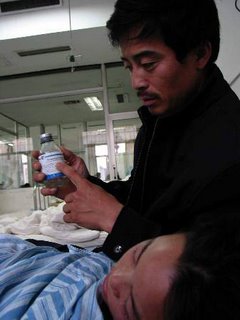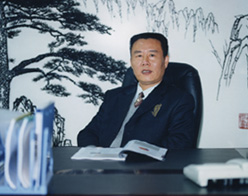
In some places, knowledge about preventing HIV is printed on poker cards for public education
Most Chinese people in a survey showed tendency to avoid contact with HIV affected people, although they supported equal rights for this group.
Over sixty percent respondents agreed that HIV affected people should have the same rights as other people to work and receive education. About sixty percent, however, responded that they would not be willing to continue to work with people tested HIV positive, according to the survey, conducted by sina.com before the Dec. 1 World AIDS Day.
For a multi-choice question about whether people would tell others if they themselves were found to have AIDS, more than 80 percent responses went to informing parents, lovers, good friends and people they had “intimate contact” with. There are also 40 percent responses going with not telling anybody.
What would people do if they knew their neighbors were affected? Forty-seven percent of the respondents said they would try to avoid contact with the affected person, 10 percent said they would move, and three percent would visit the affected person at home. There are also 41 percent choosing to continue to live like usual.
By October, there have been more than 180,000 AIDS cases reported to Chinese authorities over the years. Among the cases reported during the first 10 months of this year, 37 and 28 percent were affected through drug and sexual activities, respectively, Xinhua reported. Chinese officials say there are still dangerous factors to cause further spread of AIDS in the country.
----by Josie Liu
http://news.sina.com.cn/c/2006-11-30/204211665848.shtml


